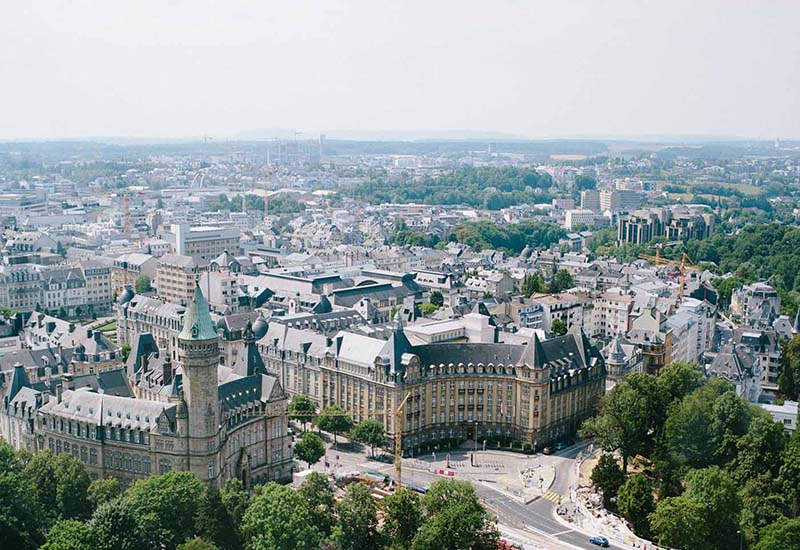The 2022 outlook for real estate investment in Luxembourg
Despite the events of the past couple of years, Luxembourg’s real estate market has once again proven resilient as it did during the global financial crisis.
Lockdowns and social distancing measures caused real estate transactions to slump, but confidence has returned since the worst impacts of the coronavirus crisis began to abate. Although not all sectors have been affected equally by events such as the pandemic, the investment market in Luxembourg displayed good overall momentum heading into 2022 — especially in the office sector.
So, how will post-pandemic occupier behaviour and global factors such as sustainability impact Luxembourg’s real estate market in 2022?
Changes and trends in Luxembourg’s real estate market
The Luxembourg office market occupies a unique place in the European office sector due to its competitive corporate tax structure and the fact that approximately 50% of its workforce resides in neighbouring countries.
According to a recent research report on the Luxembourg office market in 2021 by JLL, the office sector is the principal contributor to investment activity with a share of 78% and an average transaction size exceeding the 2020 average by 5% and the five-year average by 3.3%. Investment activity in the office market has continued to gain momentum since the end of 2020, recovering from the unsurprising fall in utilisation rates during the pandemic. Total office stock increased in 2021, while the vacancy rate has moved from 4% to 3.6%.
The first half of 2021 set a new record level of office take-up, coming in at 356,993 square metres in total over the year — 11% higher than 2020. Plus, the number of premises available for subletting exploded, as many prominent organisations looked to sublet to other businesses looking for more space. The year 2021 also saw a rise in value-added transactions in the office sector, representing 42% of transaction volumes at year-end compared to 17% in the previous year.
Some investors have shifted their interest to more defensive assets, preferring core office assets for renting to high-quality tenants. However, many international players have invested in environmental, social and corporate governance (ESG) improvements for Luxembourgian office buildings. ESG upgrades are possible within the Luxembourgian market due to Luxembourgian office stock being somewhat younger than other major European markets.
Sustainability considerations for Luxembourgian real estate
Sustainability is closely tied to ESG and has been one of the critical areas of interest for property developers in recent years.
Buildings account for approximately 40% of energy consumption worldwide, representing about 30–40% of a building’s overall operational budget. So, as an estimated 40% of the buildings that exist today will still be operating in 2040, structures with poor energy efficiency will need to be upgraded to keep up with the United Nations’ ‘Race to Zero’ 2030 target for carbon emissions.
More regulations for sustainable developments in 2022 will continue to impact the investment landscape. The European Green Deal and other ESG regulations will prompt more stringent requirements for high sustainability and energy efficiency standards, as demonstrated by the BREEAM credentials of several large-sized transactions in Luxembourg’s office market in 2021.
Additionally, two European Commission delegated acts were published towards the end of 2021 as part of the EU Taxonomy Regulation that funnels investors’ money towards sustainable developments. These acts include technical screening criteria to establish whether an economic activity contributes substantially to climate change mitigation and adaptation.
Post-pandemic future of property investment in Luxembourg
Coronavirus vaccines and post-pandemic economic recovery have restored investors’ confidence in the European real estate market, and assets in prime locations such as Luxembourg are expected to continue attracting attention as a result.
High street and retail formats recorded strong demand growth in 2021, supporting renewed optimism for this sector that struggled due to the pandemic. Most European retailers’ revenue dropped in 2020 due to coronavirus restrictions and the concurrent growth of e-commerce. However, private landlords have become more flexible in the face of challenges, and re-openings and increasing footfall have rejuvenated optimism in this market.
Working from home arrangements bring a new set of challenges. For example, whether or not to do so will be a hard choice for the 50% of the workforce that lives in Luxembourg’s bordering countries. Remote working will lead them to become tax residents where they are physical residents in France, Belgium and Germany — countries with significantly less attractive income tax and social security rates.
In Luxembourg’s office sector, rental growth is predicted to accelerate in 2022 — especially in districts with limited availability of prime and green-certified properties, such as Kirchberg, Howald, Belval, Cloche d’Or and the airport districts. The practicalities of accommodating hot-desking and social distancing may increase the demand for space within some organisations. Some office tenants will likely opt for smaller office footprints as remote working has become acceptable.
Rynda provides end-to-end real estate investment services across Europe, including Luxembourg. Contact Rynda at +44 (0) 20 3709 9875 to discuss upcoming investment opportunities.





